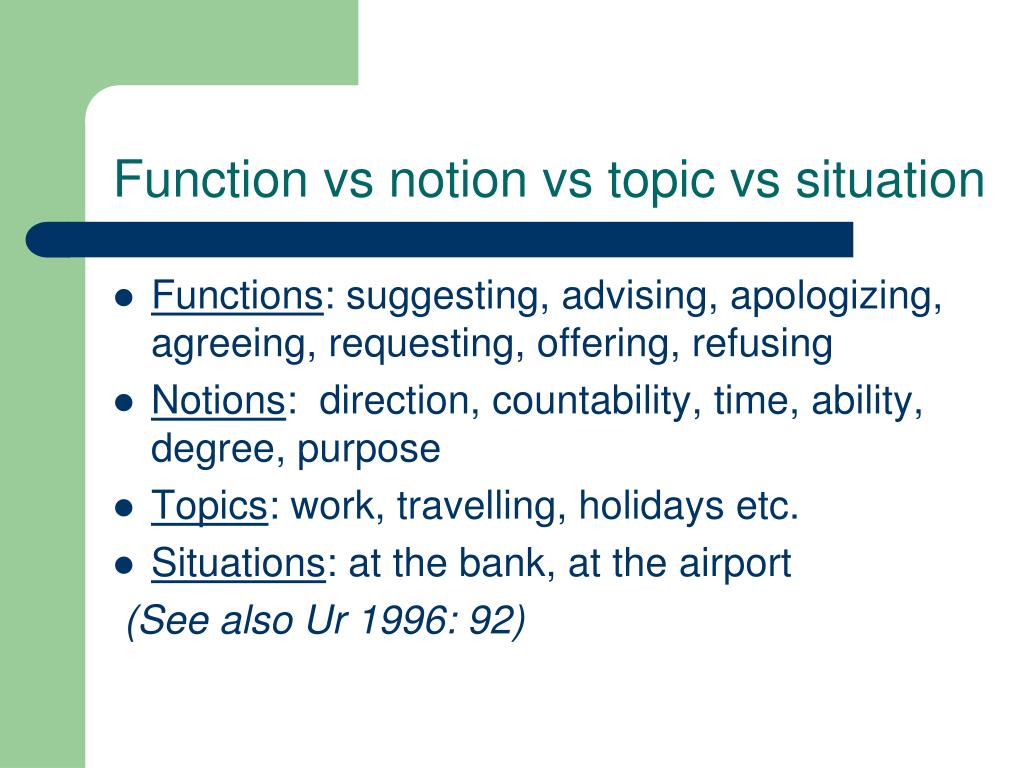

I was still quite young when I lost the romantic notion that Canada was a just and non-racist society. Where did you get the notion in your head that you should be taken care of? This is the real world, and no one is going to do that except yourself. The notion that all people are created equal is a political philosophy rather than a literal fact. The notion that all people are created equal is a political philosophy rather than a literal factFred has this strange notion that he can do whatever he wants, and no one will challenge him on it. You should be an English professor at "Or Not" University.English words and Examples of Usage Example Cambridge University Press, 1971)ĭwight Schrute: Speaking of funerals, why don't you go ahead and go die?Īndy: Oh, that was a really well-constructed sentence. (George Lakoff, "Presupposition and Relative Well-Formedness." Semantics: An Interdisciplinary Reader in Philosophy, Linguistics and Psychology, ed. Instead one must speak of a relative well-formedness and/or relative grammaticality that is, in such cases a sentence will be well-formed only with respect to certain presuppositions about the nature of the world." "here are a great many cases where it makes no sense to speak of the well-formedness or ' grammaticality' of a sentence in isolation. Hurford, The Origins of Grammar: Language in the Light of Evolution. Where is the book that the students the professor I met taught studied? The orthodox view in generative linguistics is that such examples are perfectly grammatical English, but stylistically poor, because they are hard to parse." Here is a notorious example, involving self-centre-embedding, a contentious issue since the beginnings of generative grammar. But there are definitely borderline cases where it's not clear whether a problem with a sentence is grammatical or stylistic.

"For human language, the distinction between grammaticality and good style is, for most linguists and for most cases, clear. by Siobhan Chapman and Christopher Routledge. (Marie Nilsenova in Key Ideas in Linguistics and the Philosophy of Language, ed. For a sentence to be judged acceptable, it must also appear natural and appropriate in a given context, be easily understood and, possibly, be to a certain extent conventionalized." As stressed by Chomsky, acceptability should not be confused with grammaticality: while an acceptable sentence must be grammatical, not just any grammatical sentence is necessarily acceptable. is related to speaker's performance, that is the actual use of her language in concrete situations. " Acceptability is the extent to which a sentence allowed by the rules to be grammatical is considered permissible by speakers and hearer grammaticality is the extent to which a 'string' of language conforms with a set of given rules." (Anita Fetzer, Recontextualizing Context: Grammaticality Meets Appropriateness. "The concept of grammaticality is intrinsically linked to Noam Chomsky and was intended to account for possible violations of the basic phrase structure." (Steven Pinker, The Stuff of Thought: Language as a Window Into Human Nature. There are special constructions, for example, in which English speakers use transitive verbs intransitively, as when a parent says to a child Justin bites, I don't want you to bite.Calling a sentence ungrammatical means that it sounds odd 'all things being equal', that is, in a neutral context, under its conventional meaning, and with no special circumstances in force." "Note too that when a sentence is deemed ungrammatical, it might still be used in certain circumstances.

These judgments aren't meant to accredit a sentence as being correct or incorrect in some objective sense (whatever that would mean). Designating a sentence as 'ungrammatical' simply means that native speakers tend to avoid the sentence, cringe when they hear it, and judge it as sounding odd." "I owe you an explanation of what it means to claim that 'you can't say this' or 'such-and-such is ungrammatical.' These judgments are the most commonly used empirical data in linguistics: a sentence under a certain interpretation and in a certain context is classified as grammatical, ungrammatical, or having various degrees of iffiness.


 0 kommentar(er)
0 kommentar(er)
